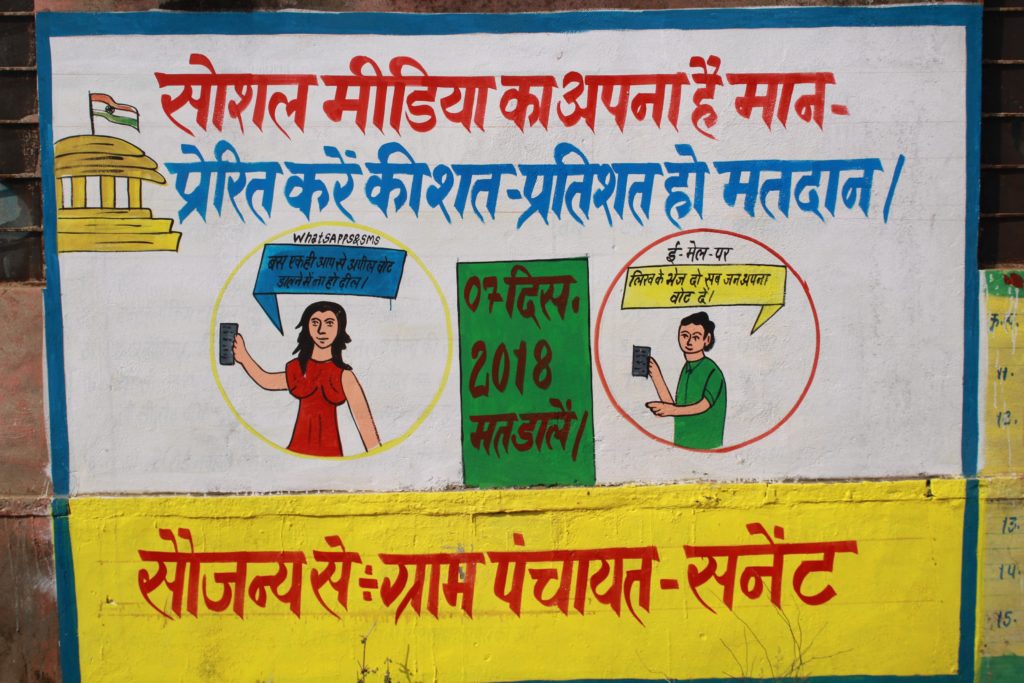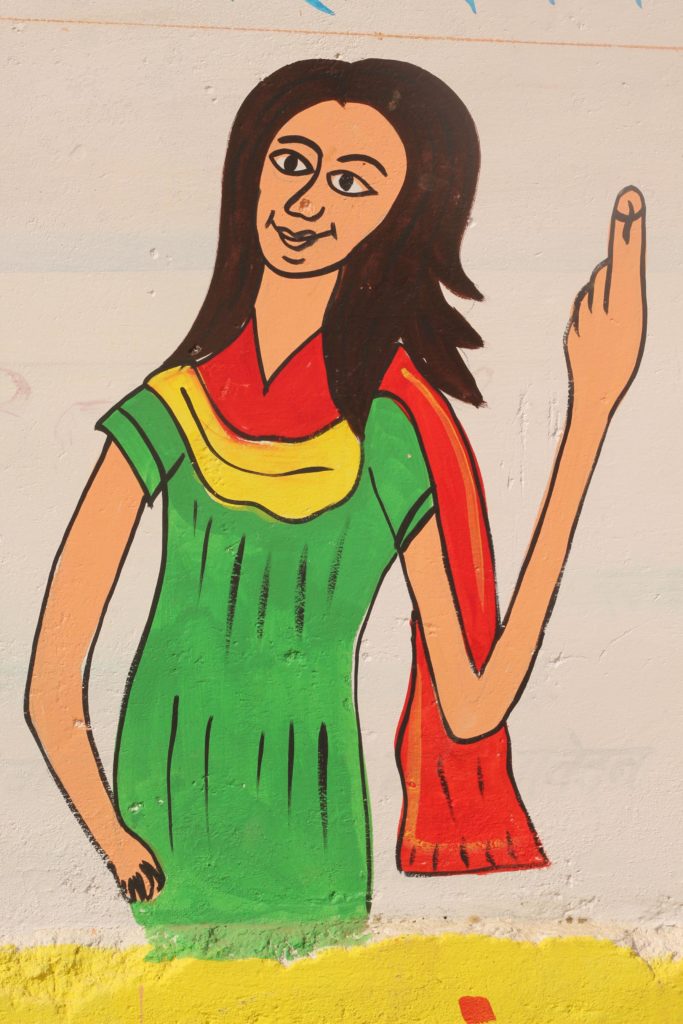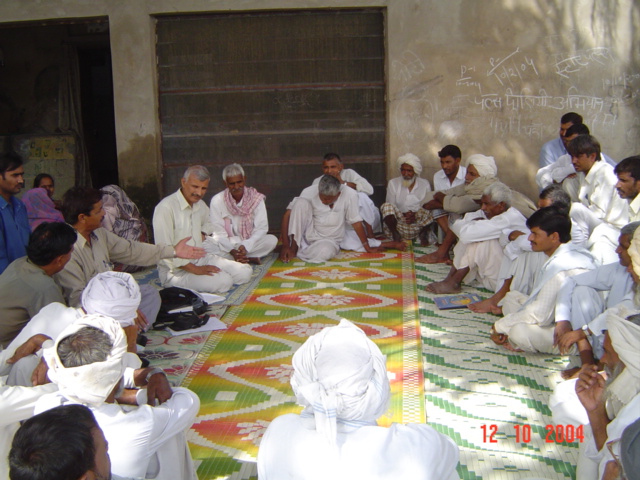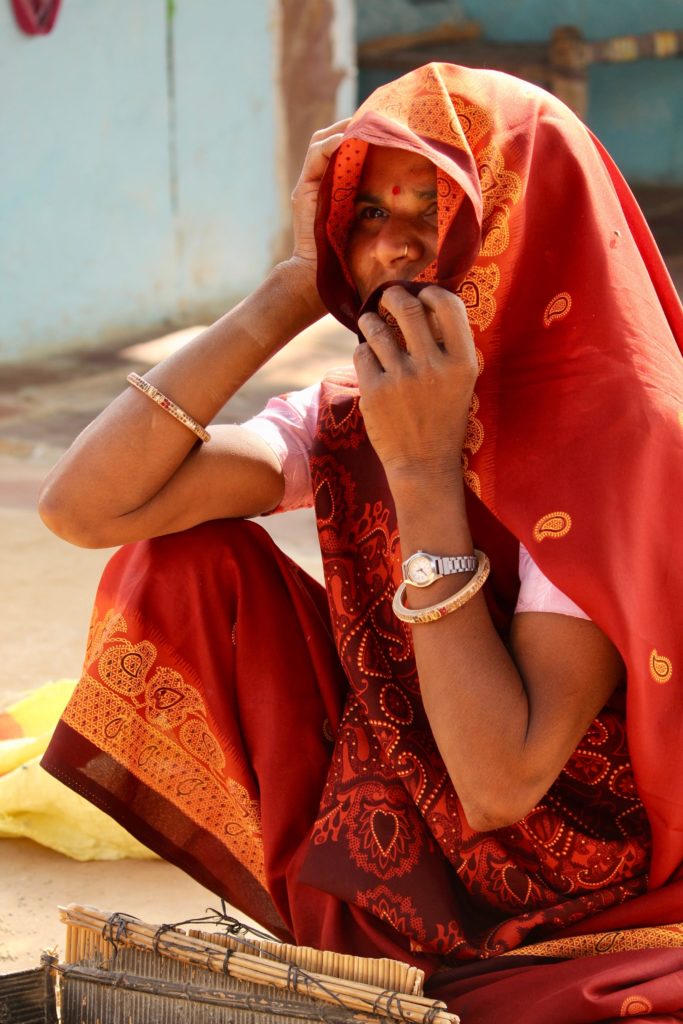By Gauri Pande

India, home to 1.3 billion people is also the world’s most populous Democracy. Enshrined in its Preamble, democracy and equality serve as the foundations of the Indian Constitution, and their reflection is exhibited in the decentralised structure of the Indian Government. On 24th April 1972, Panchayati Raj Institutions were enacted as active self-governing bodies, all across India. Owing to the 73rd Amendment of the Constitution, PRIs in India were recognized as pivotal to the progress of villages thereby aiding to the vision of a comprehensively developed nation. Panchayati Raj nevertheless, is not peculiar to a post- independent India. Traces of local democratic institutions can be found in the epics like Ramayana and Mahabharata where a retiring King would choose his successor with the help of his assembly, keeping in mind the needs and considerations of his subjects. In ‘Kautilya’s Arthashastra’, several mentions have been made regarding the then semi-autonomous governments, where a headman of the Village Panchayat would preside over the judicial and legislative functions of that village. Sir Charles Metcalfe had named Indian Village Communities ‘Little Republics’.

Article 40 of the Indian Constitution requires the states to organise Village Panchayats and to confer on them powers and authorities which may be necessary for them to act as units of self-government. The idea envisaged behind the provisions of the establishment of PRIs is that the core spirit of Democracy lies in the values of self-governance and equitable participation of all citizens. Since there are no provisions prescribed concerning specific powers which shall be provided to such institutions, panchayat laws vary from one state to another. In the judgement, State of U.P. V Pradhan Sangh Kshettra Samiti, the Hon’ble Court held that Article 40 of the I.C. which discusses Village Panchayats must have four grounds to analyze its competence:- 1. Village Panchayats need to be Self-Governing, 2. They must include either direct or Elective Participation of those it governs, 3. The people must have an effective say in the conduct of affairs of their respective Panchayats, 4. It shall not just provide a mere sense of satisfaction but also experience in governance of one's affairs. It is to be assumed that as long as the above four criteria are functional, a village panchayat is potent to manage the affairs of that village. However, anybody who understands the doctrine of Democracy can deduce that a nation’s government can only be as good as its people. Bertrand Russell said, “Democracy is where fools have a right to Vote and Dictatorship is where fools have a right to rule”, headlining the implicit fallacy which exists in almost each and every democratic structure – Universal Adult Suffrage.

Ordinarily known as the Right to Vote, adult suffrage allows the public to choose their representatives through elections. Article 325 and 326 of the I.C. ensure that Right to Vote isn’t just a Statutory Right but also holds a Constitutional validity, making it paramount in our democracy. Socrates, who was the most compelling critic of Democratic Institutions, believed that giving a man the right to vote without educating them enough to make an informed decision is as dangerous as letting a group of people sail a ship directly into a storm. In a country like India where Elections are a lot less about the morals of development and a lot more about affluence and corruption, Democracy becomes a tool of the annihilation of the very ideals it stands for. Panchayati Raj Elections are not estranged to that concept. Indian Villages, where a majority of the population is still illiterate, the theory of Conformity Bias becomes the strongest apparatus for cajolery. Commonly known as herd mentality, conformity bias is the tendency of behaving like those around you rather than using your own rational judgement. Unlike the educated community which has a choice of making an informed decision, the naïveté of village demos openly subjects them to exploitation as voters.

Another deterrent to egalitarianism in PRIs is our nation’s ingrained patriarchy. While it is not just India where dreams of most female political aspirants are quelled under male chauvinism, the harrowing state of India’s grass-root democracy adds another facet to that bias. Despite the incessant attempts made by the Government to involve active participation of women in Politics such as Constitution’s 73rd Amendment, Article 15(3) which is a provision of permissive nature granting states authority to make laws benefiting women and children, Article 243(D)cl.(2)(3)(4) which reserves 1/3rd to 50% seats for women in PRIs, the encapsulated patriarchy dictates all apprehensions of parity. Reservation for women is not the same as active participation of women and it has tragically introduced the concept of “Proxy Women” in PRIs. The term Proxy Women speaks of a pattern where elected female representatives are supposed to do the bidding of male members rather than taking their own decisions. The males of influential families in most villages wheedle the females in their families to contest Elections and once they win, their roles and responsibilities are consumed by men. Studies of Gram Panchayats in various districts reiterated that in furtherance to interlineated patriarchy, lack of education and unawareness of laws safeguarding the political interests of women are the leading reasons for mediocre involvement of women in Politics. Those who try to break forth such conventions often end in a rout.
The above expositions demonstrate that no matter however many provisions are created by the legislature to ameliorate the status of villages, the issues encompassing such democratic institutions are too stringent to be metamorphosed unless people are acquainted with their rights. Capitalising on the gullibility of voters is an implied arrangement in Indian Politics and the only way to reverse it is to ensure grass-root educational development.
Gauri Pande has finished her Bachelors and Masters degree in Philosophy from Delhi University and after working with a Think Tank – CPRG, is now getting a Law Degree from Law Faculty, Delhi University

